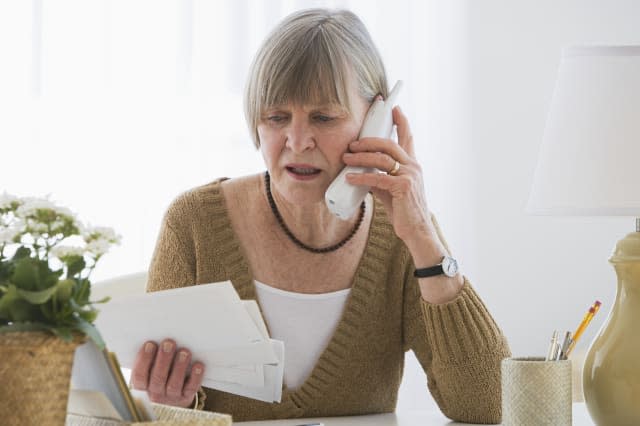Scamwatch: Crooks hit victims with double-whammy fraud

Stay one step ahead of the fraudsters with our series of articles giving you the lowdown on the scams they use to trick people out of their hard-earned cash - and how to avoid being taken in by them.
See also: How safe is your data? Could a criminal have your details?
See also: Martin Lewis warns of 'dirty scammers' using his name for fraud
This week, we explain how unscrupulous fraudsters try to catch out those already taken in by promising to help them recoup their losses.
How does it work?
So-called "fraud recovery fraud" takes place when fraudsters contact those who have already lost money claiming to be law enforcement officers or lawyers who can recoup their losses.
In the latest "fraud recovery fraud" scam, criminals are sending out letters that appear to be from the police to fraud victims, suggesting they can get their money back if they send their personal details to a South African bank.
The fraudsters use National Fraud Intelligence Bureau branding and the name of a real police commissioner to convince people the letters are genuine.
But their aim is simply to gather more information about the victims so they can scam them again.
Detective Chief Inspector Andy Fyfe, of the City of London Police, said: "This fraudulent letter is clearly not something that the National Fraud Intelligence Bureau would send to the public.
"It takes advantage of people's trust in order to steal money from those who have already fallen victim."
How can I avoid being caught out?
The police believe it is likely that the letters are being sent out randomly, so you may receive a letter of this kind whether you have been taken in by a fraud or not.
Either way, the best course of action is simply to ignore and bin it.
Even if the offer seems genuine and official, you should take advice from Action Fraud on 0300 123 2040 before responding.
I've been defrauded. What should I do?
You can report fraud recovery fraud to Action Fraud on the number above.
If you have shared any personal details that could be used to compromise your bank or credit accounts with the fraudsters, you should also contact the account providers as quickly as possible to ensure you are protected against any attempts to steal your money.
Look out too for signs your identity may have been stolen. These include bills arriving at your home addressed to someone else, and your credit report including an account you never opened.





